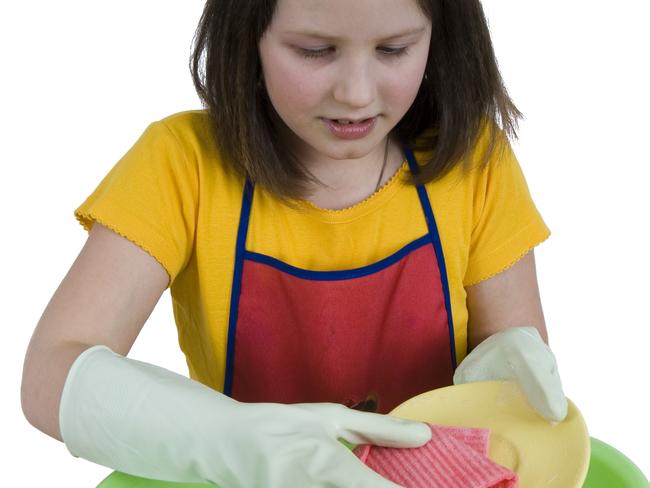How to make pocket money pay off for your children’s future
YOU don’t have to pay your kids for every little job, but experts say pocket money is a great way to teach your young ones about the value of work.

PAYING pocket money is much more important than simply shovelling some spare cash your childrens’ way.
It’s the best financial tool available to teach money lessons that can last a lifetime and, experts say, there are several ways to make small change pay off handsomely.
Firstly, use real money. While children are quickly learning how electronic transactions work through the technology they use, research has found that giving them tangible cash helps them learn the value of money faster.
The Commonwealth Bank’s head of school banking and youth, Veronica Howarth, says reward for effort is a great lesson for children, and four out of five parents who pay pocket money give it in response for children performing chores.
“But you don’t want children to expect it for every little thing they do,” she says.

Pocket money should be used to teach children regular savings behaviour, but they also need to spend some of it, and set goals and targets.
“Maybe they can draw a picture of what they want, or cut out a photograph,” Howarth says.
Zoe Pike says she and husband Duncan pay their three children pocket money as a reward for completing household chores such as feeding the guinea pigs or taking out the rubbish.
“It’s about understanding the concept of money, realising what things cost and the value of money, and that you have to do something to earn money,” she says.
Her children all do school banking. “I like the weekly discipline of it, and that it’s forced saving into the bank,” Pike says.
Deciding how much to give is a personal choice, but one of the most common methods used today is $1 for each year of age, says Catapult Wealth director Tony Catt.
He says his favourite piece of pocket money advice is the “one-third principle”.
“Put it in different jars — one third for spending, one third for saving and one third for giving. It’s the giving part, to charities or something meaningful, that has the most profound effect on kids.”



